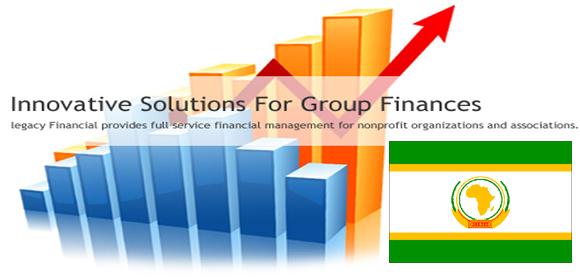- Washington “follows with interest” Morocco’s openness onto Africa (John Kerry)Posted 11 years ago
- The trial of South African Paralympic champion Oscar Pistorius opened in Pretoria on Monday.Posted 11 years ago
- USA welcomes efforts of King Mohammed VI in MaliPosted 11 years ago
- Egypt’s population reaches 94 millionPosted 11 years ago
- Mugabe celebrates his 90thPosted 11 years ago
- Moroccan Monarch to Build a Perinatal Clinic in BamakoPosted 11 years ago
- King Mohammed VI handed a donation of bovine semen for the benefit of Malian breeders.Posted 11 years ago
- Moroccan King’s strategic tour to Africa: Strengthening the will of pan African Solidarity and stimulating the south-south cooperation mechanisms over the continentPosted 12 years ago
- Senior al-Qaida leader killed in AlgeriaPosted 12 years ago
- Libya: The trial of former Prime Minister al-Baghdadi AliPosted 12 years ago
Africa: The A.U prospects for alternative sources
 “Why is the inauguration of the AU businesslike, realistic, muted with no passion while the inauguration of the OAU was characterized by militancy and confident optimism? What lessons has Africa learnt? The brief answer to these questions are simple – (a) Africa is worse off economically today than it was at the time of the founding of the OAU, (b) most African countries are mired with internal conflicts of various intensity, and (c) most African leaders can hardly claim to have control of their economic and political policies and therefore of the destinies of their countries…”.
“Why is the inauguration of the AU businesslike, realistic, muted with no passion while the inauguration of the OAU was characterized by militancy and confident optimism? What lessons has Africa learnt? The brief answer to these questions are simple – (a) Africa is worse off economically today than it was at the time of the founding of the OAU, (b) most African countries are mired with internal conflicts of various intensity, and (c) most African leaders can hardly claim to have control of their economic and political policies and therefore of the destinies of their countries…”.
Launched in 2002 on the ashes of the African Union Organisation (AUO) created in 1963, the AU has inherited of two funding sources for the regional integration process: the statutory Member States’ contribution and the continent development partners. The conclusion drawn from these two funding sources deemed insignificant, fluctuating and uncertain, and revealed today their deficiencies as blocking and crippling the achievement of projects and programs that are growing almost exponentially since 1963. Most of these projects and programs are experiencing mixed fortunes in Africa, but chronically challenged by conflicts, natural disasters – floods, droughts, volcanic eruptions, food and energy crises, and endemic diseases and pandemics. As a consequence and due to insufficient resources and instability, the continent is forced to resort to external financing institutions. This is the case for example for peace operations such as those in Sudan (Darfur), Somalia and the Democratic Republic of Congo (DRC). In 2010, 77% of the A.U budget and Program – 144.861 million US dollars, comes from the external partners. The previous statements were of 84%, in 2009, on a total budget 68.681 million US dollars, 69% in 2008 of the 47.069 million US dollars and 73%, in 2007, of the 49.687 million US dollars. The African Union is currently facing problems regarding the financing of both operational and programmed budgets, thus it is looking for alternative funding sources in a purpose to consolidate this critical issue. It has identified eight scenarios presented to the country delegates who had met in Yaoundé to be debated. It consists of collecting a special tax on airline tickets, a levy on imports, a levy on insurance premiums, a levy on hydrocarbons exports, and finally a percentage on national budgets. But the member States have provided other solutions such as financial transaction taxes, and open space taxes on airliners. They recommended that the African Union should invest in productive investments, such as owning its own real estate equity. However, these new proposals should be thoroughly studied by qualified experts, so they can be considered as alternative funding sources. Unfortunately, in Africa, there is no regular monitoring of these cases, because the delegations always change, and experts are assigned to other positions, or are different. This situation maintains a perpetual feeling of recommencement, but despite these reservations, it is wished to stay optimistic about the birth of a consensus in the Cameroonian capital. Then, let’s be bold and make concrete recommendations to our heads of state and government…
